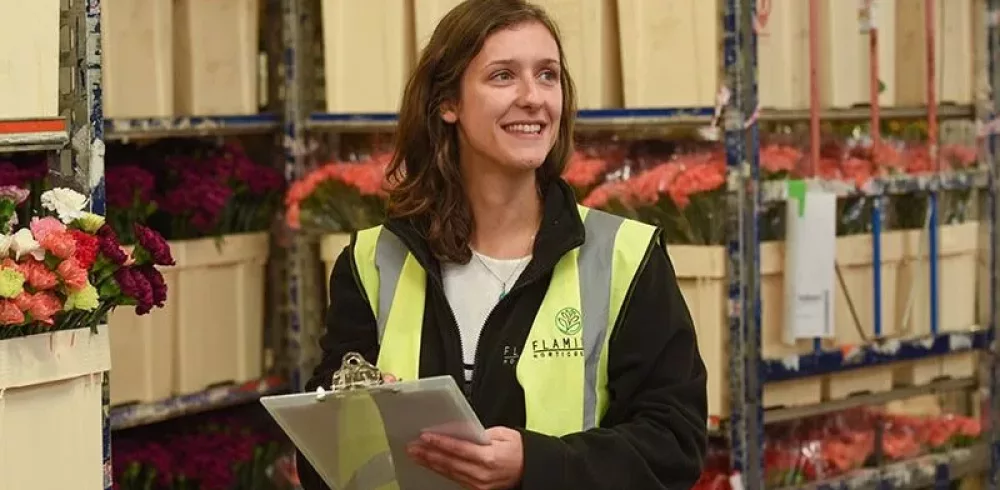Due to a further surge in demand for trainees, Management Development Services (MDS) is calling for ambitious graduates, both recent and from previous years, to apply for its two-year graduate training programme in the food and fresh produce industry.
The MDS graduate training programme works with some of the country’s leading agri-food businesses, of all sizes and at various stages of the supply chain, including Barfoots, BASF, Aldi, Adrian Scripps Ltd and Riverford Organic Farmers.
“As the food industry responds to the wider pressures of the pandemic, Brexit and the economy, member companies are looking to take on more driven and able graduates than ever. We placed 50% more graduates in the Autumn, and the demand has increased by 50% again for this Spring,” said MDS Business Development Manager, Kirsty Barden.
“This is huge credit to the MDS trainees who have shown their true worth and capability, and particularly in the last few months when many have had to work autonomously from home. We are always proud of how they respond under pressure, which is what they are trained to do, and we are also delighted that this opening up of further positions will give more young people a chance to embrace a career in a dynamic, challenging and rewarding industry.”
Spanning two years, each MDS graduate trainee undertakes four different six-month secondments in a wide range of member companies and roles, from harvest management to procurement, marketing, technical development and logistics. The training integrates a Level 5 Leadership and Management apprenticeship qualification – accredited by the Chartered Management Institute and developed with the industry in mind.
MDS currently has 66 graduates on the scheme – its highest number since the organisation was founded by three growers in 1986 – and in the past year has increased its member companies from 48 to 60 businesses in the agrifood and fresh produce sector.
MDS placements have not been interrupted by the pandemic. Sixty per cent of the current trainees are working on a flexible arrangement with employers, dividing their time between working from home and on-site; the remaining 40% are working in the office or on-site full-time.













